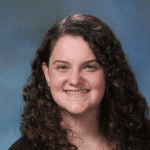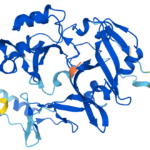Watch now: The brain-computer interface is coming and we are so not ready for it
By Halley Posner | October 23, 2020
![]()
Watch a Bulletin virtual program in which Paul Tullis and Amy Orsborn, moderated by Dawn Sinclair Shapiro, give the inside scoop on the exciting progress and potential pitfalls of the brain computer interface.
In this conversation you’ll hear how the Bulletin article sharing the name with this program came together, how neuroscientists balance ethical concerns with scientific advancement, and much more.
Read more Bulletin coverage of disruptive technology and listen to all of our virtual programs.
Amy Orsborn is a Clare Boothe Luce Assistant Professor in Electrical & Computer Engineering and Bioengineering at the University of Washington. She works at the intersection of engineering and neuroscience to develop therapeutic neural interfaces to restore motor function. Her lab explores neural interfaces as adaptive closed-loop systems that engage plasticity in the brain and spinal cord. She designs engineering approaches that shape neural adaptation to improve system performance, and uses neural interfaces as a tool to study brain learning. The lab also specializes in system integration for advancing neurotechnologies to study large-scale neural circuits in non-human primates towards clinically-translatable technologies. Among her honors, she received a L’Oreal USA for Women in Science postdoctoral award, the L’Oreal USA Changing The Face of STEM award, a Google Faculty Research Award, and is an Interdisciplinary Rehabilitation Engineering research fellow. She completed her Ph.D. at the UC Berkeley/UCSF Joint Graduate Program in Bioengineering, and was a postdoctoral researcher at NYU’s Center for Neural Science.
Paul Tullis is a journalist specializing in long form pieces for national magazines. He has written about science, technology, commerce, and their intersections for The New Yorker, The New York Times Magazine, National Geographic, Bloomberg Businessweek, Scientific American, Nature, Wired, and others. Most recently, he published his article “The brain-computer interface is coming, and we are so not ready for it” in the Bulletin exploring the potential advances and pitfalls of merging the human mind with a computer one. Paul received his BA from the University of California, Berkeley and currently lives in Amsterdam.
Dawn Sinclair Shapiro is a filmmaker and journalist. She works in the space between truth and fact to tell stories and create films that meet journalistic standards. After studying Political Science at Temple University, Dawn began her journalism career working for CBS Sunday Morning. She subsequently worked as a producer and writer at Tribune Broadcasting, CNBC, MSNBC, and Dateline NBC. As a producer for NBC Interactive Media, Dawn worked on Everest Assault ’96, editing and maintaining Sandy Hill Pittman’s daily webcast. Her third feature-length documentary, The State of Eugenics (2017) PBS REEL SOUTH, tells the story of how North Carolina overcame partisanship and delivered justice to sterilization abuse survivors. Previously, she directed, produced and wrote the PBS documentary, Inside the Handy Writers’ Colony, and The Edge of Joy, a film documenting maternal health in Nigeria, which The Economist Film Project selected as its debut film. Dawn was awarded a production grant from the MacArthur Foundation for The Edge of Joy, and in 2011, she was honored with the Nafis Sadik Award for Courage from Rotary International.
Together, we make the world safer.
The Bulletin elevates expert voices above the noise. But as an independent nonprofit organization, our operations depend on the support of readers like you. Help us continue to deliver quality journalism that holds leaders accountable. Your support of our work at any level is important. In return, we promise our coverage will be understandable, influential, vigilant, solution-oriented, and fair-minded. Together we can make a difference.
Keywords: Virtual Programs
Topics: Disruptive Technologies















